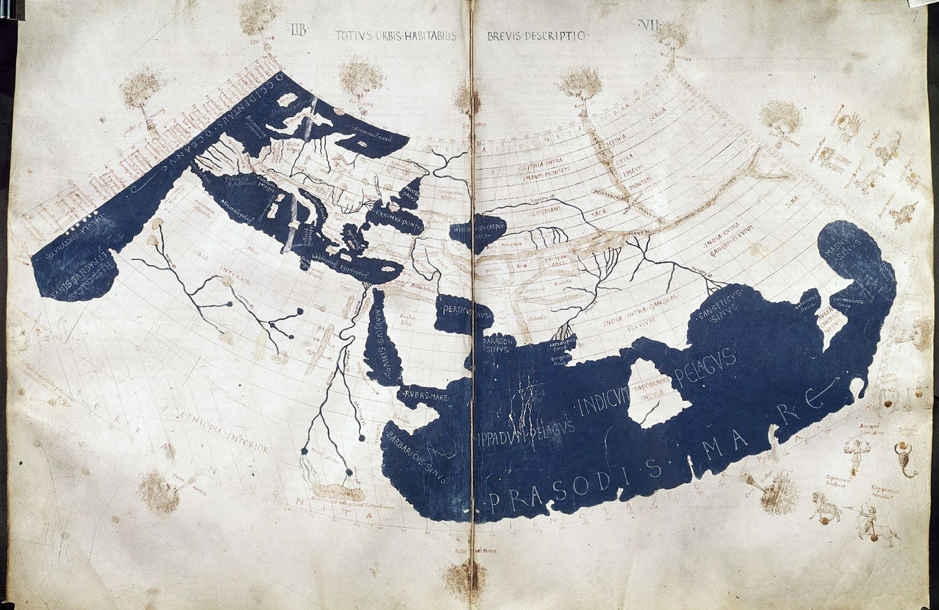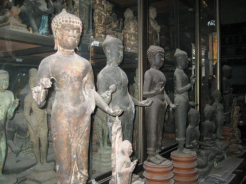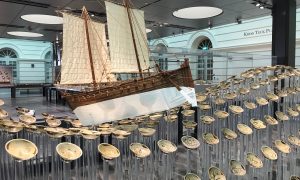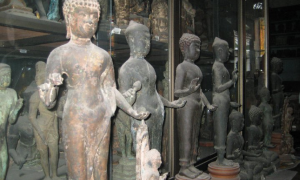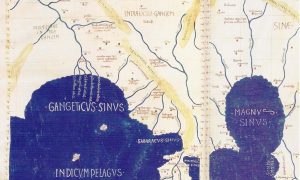On nationalism, religion, archaeology, folklore and pseudo-history.
Lost in literature: the political and religious consequences of Suvarnabhumi [Part II]

Middle-eastern glass fragments found in Bujang Valley
The Greco-Roman sources we often use when referring to contacts with Southeast Asia, from Ptolemy’s Geographia to Pliny the Elder’s Natural History, are often conflicting and filled with literary exaggerations. Strabo, whose knowledge extended only to parts of western South India, where most Indo-Arab-Roman interactions occurred, was perhaps the truest to detail. If we reposition the idea of Asia, particularly of India, in the Greco-Roman world, we find that the political-geographical space of the East served as a metaphor for opulence and ethereal philosophy to Greek and Latin writers. Classical sources about India, particularly area beyond Sri Lanka, took liberties with details. Pliny often used India as a literary device to display contrast with the Mediterranean world regarding political power, culture, governance, and morality. He had been known to criticise Roman obsession with products from the East; from his disapproval of silk on ladies to spices on Roman plates. Let me be clear that I am not arguing that these sources are not useful; on the contrary, they provide some of the most insightful social and maritime records on the interactions between the Mediterranean world and India. What I am arguing against is the use of classical sources on India beyond the Ganges, or what scholars have come to identify as Southeast Asia. Mediterranean explorers from before the 4th century CE relied on secondhand accounts of the regions around the Ganges, and even more so for the region beyond.

Ptolemy’s world map, reconstituted from Ptolemy’s Geography (circa 150) in the 15th century
Can we directly translate the Greek and Roman terms Aurea Chersonesus and Chrysos as Suvarnabhumi? The answer is similar to the usage of Suvarnabhumi as a literary function in religious texts. The concept of the Far East as a treasure trove of unimaginable wealth is not new in Mediterranean literature. Chrysos as a golden island or land appears in multiple Greco-Roman narratives, mainly as a mythical location that tested the virtues of heroes and men. India as mapped by Greco-Roman scholars was a representation of the ‘cosmological’ realm in Greek thought. Many locations in India were abstract for scholars in the Mediterranean sea. The east was the home of Dionysus, the god of passion and excess. Throughout the history of Greco-Roman scholarship, representing the East in a detailed and specific fashion was not of much scholarly interest. The Mediterranean world was content with having its spices delivered regardless of whether it was from India or Southeast Asia. Businesses in the Indian Ocean relied on Indian Ocean traders, who paid taxes at Berenike and Myos Homos.
Lost in literature: the political and religious consequences of Suvarnabhumi [Part II]
On nationalism, religion, archaeology, folklore and pseudo-history.
To conclude this series, should we keep matching sites to Suvarnabhumi? Perhaps, to study the local folklore and spread of intangible heritage such as stories and locations associated to it. Should we continue our attempt to manifest it into ancient sites or geography? That can probably best be avoided.
 Facebook
Facebook  Twitter
Twitter  Soundcloud
Soundcloud  Youtube
Youtube  Rss
Rss 